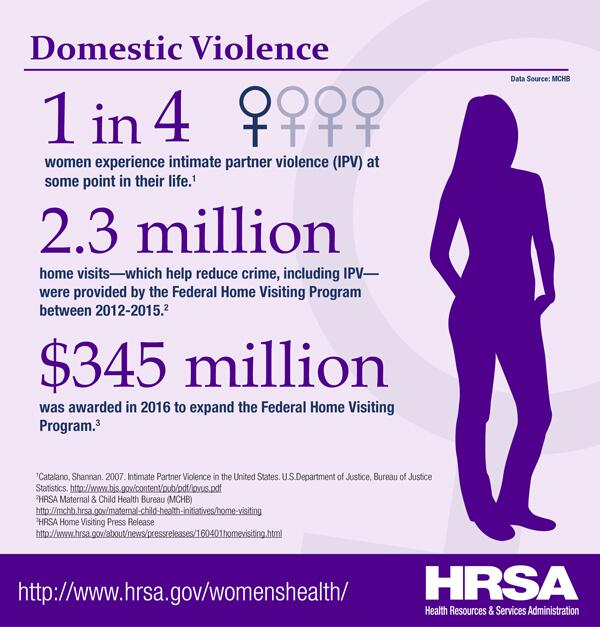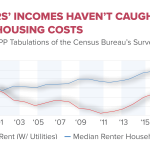Working women domestic violence remains a pressing issue that intersects with economic empowerment and safety in the workforce. As more women enter the workforce, especially in sectors like agriculture and coffee production, their financial independence can significantly impact domestic dynamics. Research shows that women’s income and safety are intrinsically linked, with studies indicating that economic empowerment frequently reduces instances of domestic abuse. In Rwanda’s coffee industry, for instance, working women have demonstrated decreased rates of violence from their spouses during harvest periods, highlighting the economic impact on violence. Initiatives aimed at women empowerment, such as access to wage-earning jobs, provide domestic abuse solutions that enhance women’s well-being both socially and economically.
The phenomenon of spousal violence against working women is a crucial intersection of gender equality and economic stability. Many female workers face domestic abuse, but emerging research points to positive correlations between women’s financial independence and lower violence rates. Studies indicate that as women participate actively in economies, particularly in agricultural sectors like coffee harvesting, their role in decision-making improves, thereby shaping their safety. Efforts in countries like Rwanda showcase how women’s contributions to industries not only bolster their economic influence but also offer practical domestic abuse solutions. Addressing women’s income and safety concerns is essential in mitigating violence against women and fostering a culture of empowerment.
The Economic Empowerment of Women in Rwanda
The empowerment of women in the economic sphere has profound implications for their social status and domestic safety. In Rwanda, the booming coffee industry has opened new avenues for women, particularly through cooperative mills that provide wage employment. As women engage in coffee processing, they gain financial independence and experience a boost in their self-esteem. This empowerment leads to increased involvement in household decision-making, which is a critical factor in addressing domestic violence. Consequently, women who earn an income are better positioned to negotiate their rights within their relationships.
Moreover, the economic independence gained from working in the coffee sector helps mitigate traditional power dynamics that often leave women vulnerable to domestic abuse. When women can contribute financially, they gain bargaining power not only in their homes but within their communities. This shift in dynamics is crucial in a society where financial stress can exacerbate tension and conflict. By reducing economic dependency, the coffee industry’s growth serves as a strategic intervention in the fight against domestic violence, illustrating the importance of women’s empowerment in fostering safer environments.
Impact of Domestic Violence on Working Women
The issue of domestic violence remains a critical concern for working women, particularly in developing economies like Rwanda. Studies indicate that economic conditions can significantly influence the prevalence of domestic abuse. While increased income can empower some women and reduce the likelihood of violence, it can simultaneously trigger a backlash in others who might feel threatened by their partner’s changing status. This duality highlights the complexity of domestic violence solutions, emphasizing the need for comprehensive strategies that address both economic empowerment and social protections.
Women working in the coffee industry in Rwanda provide a unique case study in understanding these dynamics. Deniz Sanin’s research suggests that, during coffee harvest seasons, the economic interdependence of couples reduces the risk of domestic violence. Husbands have a vested interest in the wellbeing of their wives, as their income is tied to the success of the harvest. This finding indicates the potential for economic policies aimed at women to produce significant positive outcomes in reducing domestic violence, but it also stresses the need for supportive measures, such as legal protections and social programs, to safeguard women’s rights.
Link Between Women’s Income and Domestic Safety
Financial independence plays a pivotal role in enhancing a woman’s safety from domestic violence. As evidenced in Rwanda, women who are part of the coffee cooperative mills report feeling safer from their partners due to their earning power. Their ability to contribute to household finances directly impacts their self-worth and autonomy, making them less tolerating of abusive behaviors. Income not only buffers women against financial abuse but also gives them leverage when making decisions in abusive circumstances. This underscores the critical need for policies that promote women’s financial opportunities as a mechanism to combat domestic violence.
Furthermore, the economic contributions of women also invite broader societal change, redefining gender roles within communities. As women become breadwinners, more equitable household dynamics emerge, and traditional views on women’s roles are challenged. This economic shift is essential for any sustainable solution addressing domestic abuse, as it intertwines with themes of women’s empowerment and safety. Thus, enhancing women’s economic prospects is not just an issue of financial growth but a fundamental step toward achieving gender equity and reducing domestic violence across societies.
Rwanda’s Coffee Industry: A Case Study in Empowerment
Rwanda’s coffee industry serves as a compelling example of how economic initiatives can empower women and improve their societal positions. The establishment of coffee cooperatives has not only created jobs for women but also enabled them to earn stable incomes that enhance their financial autonomy. This economic empowerment is crucial, particularly in a country where traditional norms have historically marginalized women’s roles. The direct involvement of women in coffee production and processing demonstrates a transformative potential that extends beyond mere economic transactions.
As women engage in this industry, they begin to play an active role in their communities and families, challenging the status quo of gender relations. The ripple effects of this empowerment are evident in improved health, education, and social standing among women. Additionally, as these women gain confidence and resources, they can advocate for themselves against domestic violence, creating a culture that slowly shifts toward greater equality and respect. This case study illustrates that economic empowerment, particularly in emerging sectors like coffee production, can significantly enhance women’s rights and reduce domestic abuse.
Domestic Abuse Solutions in the Context of Economic Growth
Finding solutions to domestic abuse requires a multifaceted approach, particularly in economies experiencing rapid growth like Rwanda’s coffee sector. Economic initiatives focusing on women’s empowerment directly impact the prevalence of domestic violence. Evidence from various studies indicates that enhancing women’s financial independence can lead to a reduction in domestic abuse, as empowered women are more likely to assert their rights and seek help. Efforts to improve women’s income through employment in industries such as coffee processing are thus viewed as crucial strategies for creating lasting change.
However, it’s essential that these economic solutions are coupled with robust legal and social frameworks that address the root causes of domestic violence. For instance, educational programs that challenge traditional gender norms and provide resources for legal recourse can further amplify the positive effects of economic empowerment. Creating environments where women feel safe to pursue their economic interests will not only contribute to their financial stability but also enhance community wellbeing and foster a culture of respect that diminishes the incidence of domestic violence.
Understanding the Economic Impact on Violence
The economic impact of domestic violence on societies is profound, influencing not just the victims but also the economy at large. In contexts like Rwanda, where the coffee industry has become a significant player in economic growth, understanding these dynamics is essential. Domestic violence can have debilitating effects on productivity, healthcare costs, and overall economic development. It’s crucial to analyze how women’s economic involvement in high-demand sectors like coffee can mitigate these costs and foster a culture of empowerment that reduces violence.
Moreover, researchers have found a correlation between economic hardship and increased violence against women. When families struggle financially, tensions can lead to conflict, potentially escalating into violence. However, the situation is complex; studies, including those by Deniz Sanin, have shown that when women gain economic leverage, not only do their individual safety prospects improve, but community health standards rise as a result. Addressing the economic impact of violence is thus paramount in crafting interventions that ensure the safety and empowerment of working women.
The Role of Women’s Cooperatives in Strengthening Community Ties
Women’s cooperatives are vital in enhancing social cohesion and promoting economic empowerment, particularly in the context of Rwanda’s coffee industry. By banding together, women can share resources, knowledge, and skills, which fortifies their position against domestic violence. These cooperatives provide a support network that not only addresses economic needs through income generation but also catalyzes social change by fostering solidarity among women. The collective influence of these groups has the power to challenge patriarchal norms and encourage personal empowerment.
Additionally, cooperatives serve as platforms for education and awareness, equipping members with the necessary tools to recognize and combat domestic abuse. By creating environments where women can discuss their experiences openly, cooperatives promote a sense of agency and strength. The success seen within these groups exemplifies how community-driven solutions can have a multiplier effect, influencing broader societal attitudes towards gender roles and reducing the overall prevalence of domestic violence.
Shaping Policy for Sustainable Change
As evidenced by Deniz Sanin’s research, the implications of women’s employment in the coffee sector extend far beyond economic growth. They touch upon the very fabric of societal norms and behaviors related to domestic violence. To leverage these insights, policymakers must prioritize the integration of women’s empowerment and domestic violence prevention strategies into economic planning and development frameworks. By recognizing the link between women’s earnings and safety, authorities can create more effective interventions that address both immediate economic needs and longer-term societal change.
Furthermore, engaging stakeholders from various sectors in dialogue about women’s rights and domestic violence solutions is critical for sustainable change. Policymaking should not only focus on boosting economic productivity but also on safeguarding women’s rights and promoting social justice. Strategies that bring together economic development, legal reform, and social empowerment can create a holistic approach to reducing domestic violence and fostering an environment where women can thrive both economically and socially.
Frequently Asked Questions
How does working women empowerment relate to domestic violence prevention?
Empowering working women can significantly reduce the likelihood of domestic violence. Economic independence provides women with greater bargaining power in their relationships, making them less vulnerable to abuse. In many cases, as seen in studies like those from the Rwandan coffee industry, financial stability can lower instances of domestic violence by allowing women to make independent decisions and providing them with an exit option from harmful situations.
What role does women’s income play in combatting domestic violence?
Women’s income plays a crucial role in combatting domestic violence by enhancing their economic independence and decision-making ability. Studies have shown that as women earn more, they become less likely to experience domestic abuse. The income not only helps alleviate financial stress in relationships but also empowers women to leave abusive situations, especially when divorce is a viable option.
Can income from the Rwandan coffee industry reduce domestic violence among women?
Yes, income from the Rwandan coffee industry has been shown to reduce domestic violence among women. Research indicates that women employed in coffee processing cooperatives experience less abuse during harvest season, as their contributions significantly impact family income. This economic empowerment can discourage domestic violence by aligning husbands’ interests with their wives’ ability to work and contribute financially.
What economic impact does violence against women have on working women?
The economic impact of violence against women is profound. It not only affects women’s ability to earn an income but also incurs costs related to healthcare, legal fees, and lost productivity. Addressing domestic abuse through economic empowerment can enhance the overall economic stability of families and communities by ensuring that women can participate fully in the workforce without fear of violence.
What solutions exist for domestic abuse that specifically target working women?
Solutions for domestic abuse targeting working women include providing access to employment opportunities, legal protections, and support services that recognize the unique challenges faced by working women. Programs that focus on women’s economic empowerment, such as those supporting jobs in sectors like the Rwandan coffee industry, can help mitigate the risk of domestic violence by improving women’s financial autonomy and safety.
How does exposure to abusers impact working women’s safety?
Exposure to abusers can significantly affect working women’s safety. When women work outside the home, they have less direct contact with their partners, which may lead to decreased opportunities for abuse. However, it’s important to note that economic factors also play critical roles; when husbands benefit economically from their wives’ labor, it may further reduce incidents of domestic violence.
Why is it necessary for policies to support working women’s income in the fight against domestic violence?
Policies supporting working women’s income are essential in the fight against domestic violence because they directly contribute to women’s empowerment. By ensuring women have access to stable employment and equitable pay, these policies can reduce dependency on abusive partners and create an environment where women feel secure making independent choices about their lives.
| Key Points |
|---|
| A study examined the impact of women’s employment in Rwanda’s coffee industry on domestic violence. |
| Women working in coffee cooperatives reported a 29% reduction in self-reported domestic violence incidents. |
| In areas with coffee mills, the mean hospitalizations for domestic violence decreased by 14% during the peak harvest season. |
| Women’s financial independence, increased bargaining power, and reduced conflict over finances contribute to lower domestic violence rates. |
| The study identifies the necessity of a credible threat of divorce for the benefits of employment to effectively reduce domestic violence. |
Summary
Working women domestic violence is a significant issue that can be mitigated by financial empowerment resulting from employment. Recent research into Rwanda’s coffee production industry reveals that working women experience less domestic abuse during the harvest season, as their roles in cooperative mills provide them with both economic independence and greater bargaining power in their relationships. The findings suggest that as women earn wages and contribute to household decision-making, the likelihood of domestic violence decreases. Women’s empowerment through stable employment not only enhances their financial standing but also fosters a safer domestic environment, thereby addressing critical socio-economic challenges related to working women domestic violence.










